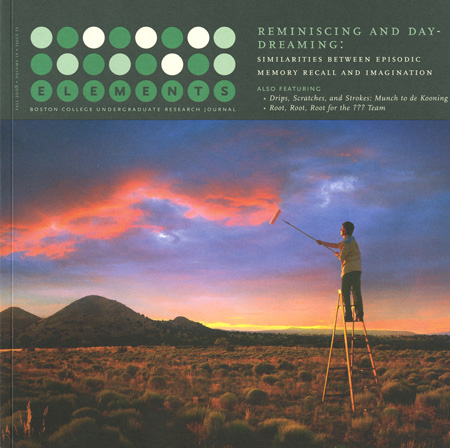Reminiscing and Daydreaming: Investigating the Similarities Between Episodic Memory Recall and Imagination
DOI:
https://doi.org/10.6017/eurj.v4i2.8885Keywords:
Fall 2008, natural science, neuroscience, psychologyAbstract
The power of imagination has long been touted as a distinctive property of human cognition and remains a heated topic amongst philosophers, scientists, and daydreamers alike. Despite playing a critical role in the majority of humanity's finest achievements, little is known about how this faculty actually works. Recent findings from lesion patients point to the involvement of the hippocampus in imagining new scenarios. The hippocampus is historically associated with long-term memory consolidation, and memory models arising from new findings in the molecular pathways of memory allow for a more fluid transition between imagination and memory. Elizabeth Loftus' famous studies of false episodic memory recovery further demonstrate overlap between imagined and recalled events. Finally, an FMRI study is proposed to compare brain activity during both episodic memory recall and tasks that require imagination in order to pinpoint regions for further investigation.Downloads
Published
2008-11-01
How to Cite
Fischer, K. (2008). Reminiscing and Daydreaming: Investigating the Similarities Between Episodic Memory Recall and Imagination. Elements, 4(2). https://doi.org/10.6017/eurj.v4i2.8885
Issue
Section
Articles
License
Copyright (c) 2015 Elements

This work is licensed under a Creative Commons Attribution 4.0 International License.

